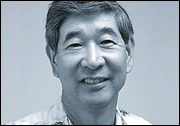Advertisement - Click to support our sponsors.


View Point

I am appalled by many of the comments being made about marijuana, within the context of legalizing medical marijuana. Yet I do not recall any inclusion of the scientific evidence that is accumulating as to the detrimental effects of marijuana. Marijuana is not
a safe drugI have personally worked for many years in the substance abuse field. On a daily basis, I see hard-core drug addicts desperately trying to recover from their severe addictions, mostly to heroin. It has destroyed their lives.
The staff and I make monumental efforts to help these individuals, with the discussion often based on "how to get them to stop." And when we review their histories, their substance abuse often includes the use of alcohol, tobacco and marijuana in their early years.
Marijuana, in fact, often has been characterized as the "gateway" drug that leads to further illicit drug use and addictions like heroin.
In fact, sociological studies in high schools have shown that teens who use tobacco and alcohol have a 200 times greater likelihood of going on to illicit drugs such as heroin.
New scientific evidence is very clear that marijuana acts on the Mu opiate receptor sites, the same area of the brain stimulated by morphine. Heroin, after it is injected intravenously, is broken down into morphine, which stimulates the opiate receptor sites of the brain, resulting in the "high" that heroin addicts achieve.
Furthermore, it has been scientifically proven that opiates like heroin stimulants -- such as cocaine, alcohol and nicotine -- all act on the same area of the brain producing dopamine. Dopamine is the neurotransmitter that enables us to feel good, and is increased by marijuana.
Marijuana, unfortunately, often is characterized as being a "safe" drug. Yet its potency has grown tremendously with the selective breeding techniques boosting the active ingredient, delta-90-tetrahydrocannabinol.
The resulting physical dependence developed from chronic marijuana use will cause a much more severe abstinence syndrome when marijuana use ceases. Abstinence from marijuana may duplicate the classic "cold turkey" syndrome of getting off heroin, with symptoms including insomnia, nausea, agitation, irritability, depression and tremor.
The adverse effect of marijuana causing major havoc in our schools is its effect on learning. Short-term memory loss can be severe. The ability to learn is often impaired.
Recent research on the detrimental effects of drugs has been focusing more on the genetic affects of marijuana. Most studies have been concerned with the effects of illicit drug use by a pregnant mother on her unborn child.
Only a few studies have been conducted on prospective fathers. One of the most interesting involves mice exposed to marijuana.
A radioactive-isotope was attached to the marijuana, which was inhaled by the mice. This isotope could be clearly visualized with specialized instruments on the head of the sperm. It was noted that the sperm of the mice had a significant increase in the incidence of "two-headed" sperm.
The sons of these mice had a significant increase in the incidence of "two-headed" sperm as well.
This is evidence that genetic changes occur as a result of marijuana use and are genetically transferred to subsequent generations.
The effect of marijuana on psychomotor tasks is enormous. Motor vehicle accidents are prevalent when drivers are intoxicated by marijuana. The effect of recreational use of marijuana has been characterized as equivalent to .07-.10 percent blood alcohol levels. These levels are consistent with a DUI conviction in many states.
AS a member of the American Society of Addiction Medicine, I have attended meetings with thousands of physicians nationwide dedicated to the fight against drug addiction. We are united in fighting the disease of drug addiction, which is so prevalent in society.
We have debated the use of marijuana in the population of outpatient addiction centers that most of us were involved in. The vast majority of the physicians felt that marijuana greatly prevented the recovery of many addicts from drug addiction.
Marijuana is a "gateway" drug that has enabled millions of Americans to proceed toward a miserable lifetime of drug addiction and suffer many severe health consequences. It is not harmless.
Kenneth M. Sunamoto is a family physician
with a special interest in addiction treatment.